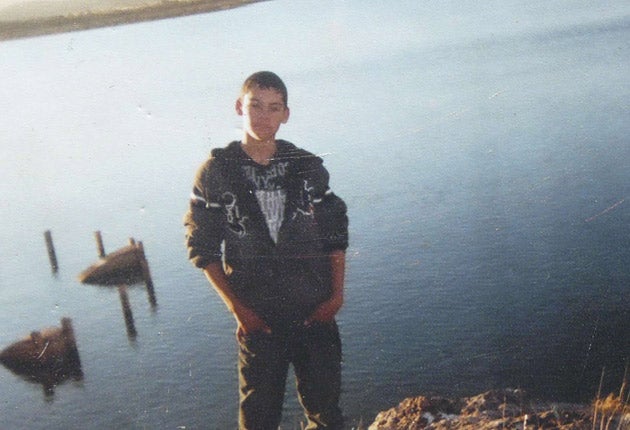Mexico condemns US for shooting boy over border

Felipe Calderon, the President of Mexico, is demanding a full investigation into the fatal shooting of a young Mexican by US border patrol agents. It is the second such event in less than a fortnight and has set off a new immigration row between the two countries.
The circumstances of the latest incident are not entirely clear. On Monday evening on the banks of the Rio Grande river that divides El Paso in Texas from the Mexican city of Ciudad Juarez, a teenage student was killed during a fracas between the agents and a group of would-be illegal immigrants.
According to a US spokesman, two Mexicans were arrested before the rest of the group ran back across a bridge spanning the river and began to pelt one of the border agents with rocks. The agent opened fire in self-defence, apparently killing 14-year-old Sergio Adrian Hernandez Huereca with a shot to the head.
But that version has not satisfied the authorities in Ciudad Juarez, who point out that the boy's body was found on the Mexican side of the border. They insist the affair is another example of the US police using excessive force in such confrontations. "The young man was not armed," a Mexican spokesman said. "He did not have the physical size to threaten anyone. The aggression [by the US agent] is evident."
In a statement, Mr Calderon condemned the shooting and called for the incident "to be thoroughly investigated and those responsible punished", while the Mexican foreign ministry charged that the use of firearms to respond to an attack with rocks was "a disproportionate use of force" by US officials who were supposed to have been specially trained to handle such clashes.
The victim's mother denied reports he had been trying to cross the border. "He was here in Mexico. They killed him in Mexico." Another witness said the US agent shot not once but twice, stunning the 14-year-old with a first bullet before killing him with a second.
The new row comes just 10 days after another Mexican, Anastasio Hernandez, died on the border separating San Diego in southern California from Tijuana in Mexico, after a US customs and immigration officer used a stun gun against him. That death was ruled a murder by the medical examiners office in San Diego. Amnesty International called for an inquiry into the shooting and the use of force by US officials along the border.
Yesterday both sides were marshalling statistics to support their claims. The Mexican foreign ministry says the number of its countrymen killed or wounded by US border agents has jumped from five in 2008 to 12 last year, and to 17 in barely five months of 2010.
But a spokesman for US Border protection said that assaults on its personnel were rising steadily, and that it was up to individual agents to decide on an ad hoc basis whether to use lethal force, allowed under "imminent threat of physical or bodily harm which could cause death or injury or in protection of an innocent third party".
The deadly incident deepens long-standing differences over immigration between the two countries. Mexico is already furious at a controversial new law in Arizona that requires police to question people about their immigration status if they have stopped them for a legitimate reason. President Obama has personally challenged the Arizona law, but most Americans approve of it.
Join our commenting forum
Join thought-provoking conversations, follow other Independent readers and see their replies
Comments
Bookmark popover
Removed from bookmarks